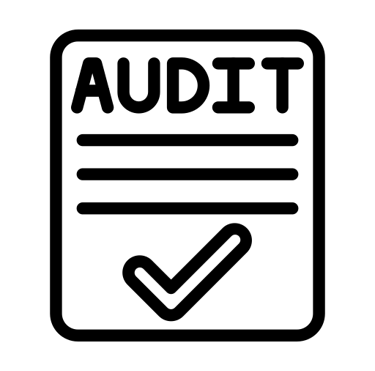
Our Services

An Environmental Impact Assessment (EIA) is a detailed report that analyzes the potential environmental impacts of a proposed project or development. It plays a vital role in the EIA process, ensuring that environmental considerations are taken into account by decision-makers before any project is approved.
Our EIA services cover a broad range of support, including early-stage project consultations, drafting of Terms of Reference (TOR), collection of baseline environmental data (both primary and secondary sources), engagement with regulatory bodies, stakeholders, and local communities, assistance in securing environmental approvals and permits, as well as the development and execution of environmental management plans and systems throughout the construction, operation, and decommissioning phases of a project.



ENVIRONMENTAL IMPACT ASSESSMENT (EIA)

An Environmental Management Plan (EMP) is a comprehensive document that outlines the necessary strategies and actions to manage, reduce, and monitor the environmental impacts identified in the Environmental Impact Assessment (EIA). It serves as a structured approach to minimizing adverse environmental effects while enhancing the project’s positive contributions.
We assist clients in developing EMP across various industrial sectors. Our EMP are designed not only to comply with the Department of Environment (DOE) regulations but are also practical, action-oriented, user-friendly, and cost-efficient. They cover all three key phases of project implementation—construction, operation, and decommissioning. With a proven track record, GGT delivers effective and realistic solutions to anticipate and address potential environmental impacts, helping clients manage both environmental and business risks in alignment with sustainable development objectives.

ENVIRONMENTAL MANAGEMENT PLAN (EMP)



Environmental audits are valuable in helping organizations manage environmental risks, boost operational efficiency, and maintain adherence to regulatory standards. They also reflect a strong commitment to sustainability, which plays a growing role in enhancing corporate image and building stakeholder confidence.
GGT is authorized by the Department of Environment (DOE) with a registered environmental auditor to conduct audits in accordance with Section 33A of the Environmental Quality Act 1974. Our services cover all relevant operations and activities that support compliance with the Act or those specified by the DOE through official directives. Additionally, we offer advisory services for internal compliance audits to assist organizations in meeting other applicable guidelines, standards, and codes of practice.

ENVIRONMENTAL AUDIT



GGT has qualified and experienced trainers capable of delivering Health, Safety, and Environment (HSE) training and awareness programs tailored to meet client-specific needs. We offer a wide range of HSE training modules, or customized programs aligned with the client’s operations and activities, supporting them in achieving compliance with relevant HSE legal and regulatory requirements.

HEALTH, SAFETY AND ENVIRONMENTAL TRAINING



Environmental monitoring plays a crucial role in environmental assessments by evaluating the effects of development on the surrounding area's physical, chemical, and biological systems. It is essential for establishing baseline data before any project begins and is also a mandatory requirement as part of the post-EIA approval conditions set by the Department of Environment (DOE) under the Environmental Quality Act 1974.

ENVIRONMENTAL BASELINE SAMPLING AND MONITORING




FEASIBILITY STUDIES


A successful project begins with a strong foundation, which starts by evaluating its feasibility. Feasibility studies examine the practicality, sustainability, and regulatory compliance of a proposed project, helping clients assess its environmental viability. These assessments identify potential challenges, costs, and mitigation strategies early in the planning stage.
At GGT, we offer in-depth feasibility studies designed to support informed decision-making and reduce risks, giving your business the confidence to move forward responsibly and strategically.


HSE LEGAL REGISTER AND GAP ANALYSIS


An HSE (Health, Safety, and Environment) Legal Register is an organized document or system that outlines all relevant health, safety, and environmental laws, regulations, standards, and compliance obligations applicable to a company’s operations. It acts as a central reference to help ensure the organization fulfills its legal duties and avoids non-compliance issues.
GAP Analysis, on the other hand, is a structured assessment that identifies the differences between current practices and the required standards or compliance targets in HSE management.
The HSE Legal Register establishes a clear understanding of the legal obligations the organization must meet, while the GAP Analysis determines whether existing practices align with those requirements and identifies areas for improvement.


MAN POWER SUPPLY - ENVIRONMENTAL OFFICERS (EO)


